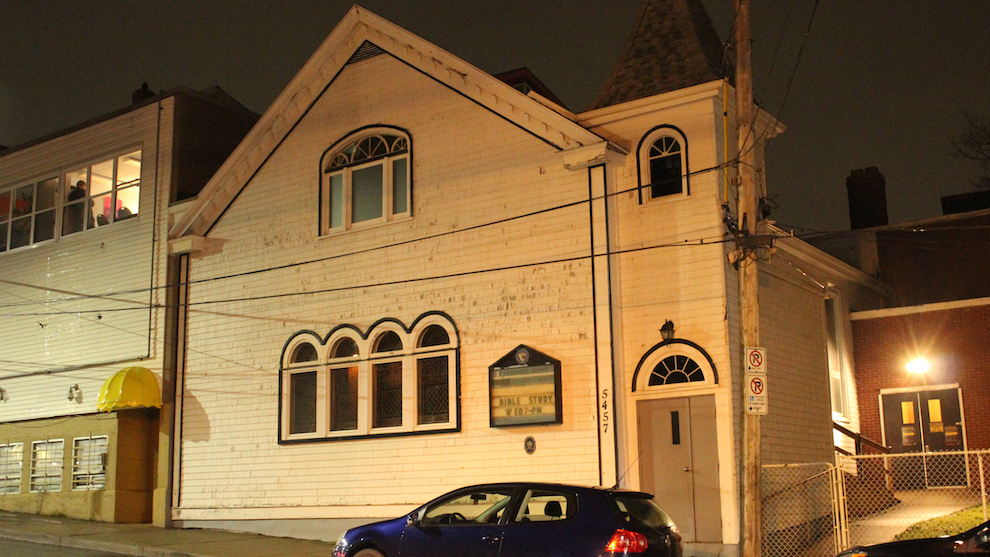Street Checks
Criminologist listens to black community’s stories of street checks
Black people three times more likely to be carded than whites, HRP data shows

caption
No recording of any kind was permitted inside Cornwallis Street Baptist Church Monday evening.
caption
No recording or photography was permitted during the meeting inside Cornwallis Street Baptist Church.About two dozen people met at the Cornwallis Street Baptist Church Monday evening to share stories about their experiences with Halifax police.
The discussion was the first of three public meetings held by the Nova Scotia Human Rights Commission to examine the impact of street checks on African-Nova Scotians. Stories told at Monday night’s discussion will be used in an examination of street check data released by Halifax Regional Police in January.
A street check, also known as carding, is the police practice of gathering personal information of people who may not be suspected of committing any crime, for the purpose of documentation. HRP’s data shows black people are three times more likely to be street checked than whites.
The commission, an independent government agency that works to resolve allegations of discrimination, hired Scot Wortley to examine the data. Wortley is a criminologist and professor from the University of Toronto with 21 years of research experience in the social determinants of crime. Related stories
“I will do my very best to provide a high quality report that should stimulate discussions for years to come,” he said to the group Monday night.
Wortley sat at a table in the church’s auditorium facing an audience of about 25 people. Kymberly Franklin, a lawyer for the Nova Scotia Human Rights Commission, sat beside him. She took notes while several people shared stories of decades-long discrimination by police.
Franklin said it was important to “create a safe space” for people to share their personal and often traumatic stories and asked everyone to not photograph, videotape or voice record any portion of the discussion.
Shawn Parker, an outreach worker for Ceasefire Halifax, spoke with The Signal after the meeting.
Parker, who is African-Nova Scotian, said that police have been conducting street checks since he was a kid. He said police officers used to “rough him up” on the streets, even if he was minding his own business. Today, he said, police treat young black men the same way.
“You cannot move forward if you’re not going to recognize you have some issues to clean up,” Parker said, referring to Halifax police.
During the meeting, several people expressed frustration about having to retell traumatic stories. Parker said similar meetings with municipal officials and the black community have not brought about change.
“Nothing ever gets done,” he said.
Wortley has conducted research into street checks and police use of force in both Ontario and British Columbia. During Monday’s meeting, he said police in Ontario changed their practices, but he isn’t sure if his examination will bring similar changes in Halifax. Nonetheless, he finds that hearing and recording stories of people affected by street checks in Halifax is important.
The second meeting is scheduled for Tuesday from 7 to 8:30 p.m. at the Black Cultural Centre in Cherry Brook, while the third meeting is Thursday from 7 to 8:30 p.m. at the North Preston Community Centre.

